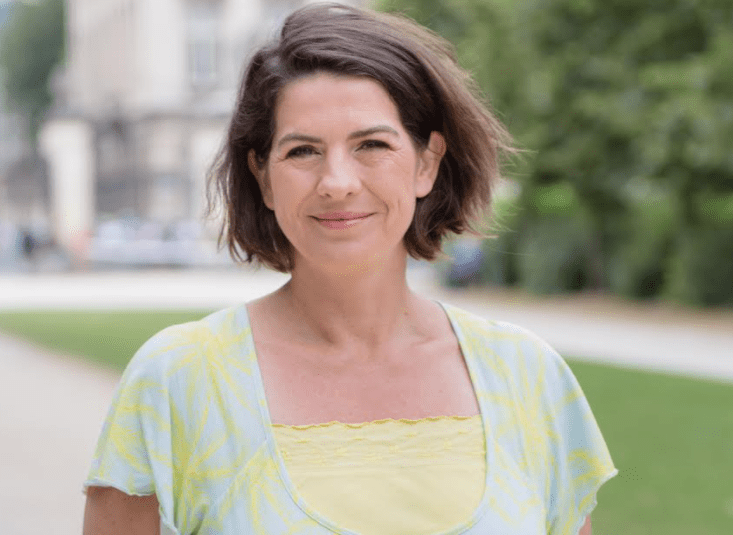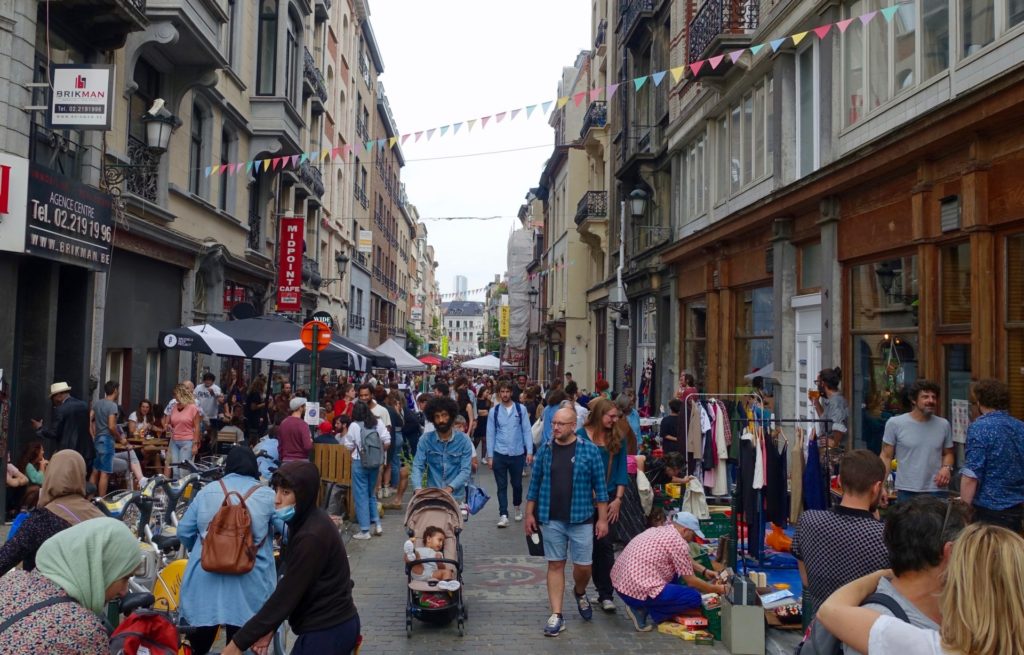In cities like Antwerp and Charleroi, bystanders who witness harassment and intimidation don’t intervene or react in more than 90 percent of cases. In Brussels, that number is 70 percent.
The figures come from Plan International, and the Belgian capital wants to do better.
“I think the whole idea of bystanders is so, so important,” Lotte Stoops (Groen), Member of the Brussels Parliament, told The Brussels Times.
“Every time we talk about harassment we need to be asking how we can activate bystanders and help people who really want to do something to do it; that's not easy.”
Belgium struggles with rampant and unreported sexual harassment, with nine in 10 women and girls in several of the country’s biggest cities having experienced it in public spaces but only six percent of cases being reported.
It’s such a significant issue that Brussels police have launched a special initiative to combat the problem with plainclothes police officers. But Stoops says that regular people who witness harassment can help, too.
“This should be a priority,” she said. “Getting support or help when you are harassed is very important. Not only does it defuse a dangerous situation, it also promotes recovery afterwards.”
At Stoops’ request, the Brussels Government plans to address the issue of bystander nonreaction to harassment - sexual or otherwise - as part of a larger plan to tackle street harassment in the city.
“Teaching bystanders how to react works not only on witnessed aggression and intimidation, but also racism, so it can have a helpful effect on a broader scale,” Stoops said.
Collective responsibility
“Activating bystanders can produce a huge societal gain. It can be really effective at lowering harassment on a bigger scale.”
Stoops points out that group psychology plays a big role in a lack of response to witnessed harassment.
“If you’re in a group and you all witness something together, then all of a sudden you don’t feel individually responsible. Nobody reacts anymore,” she explained.
“One of the things you can do if you’re a bystander in this situation without the power to do something physically is ‘responsibilise’ other people in the bystander group [ie. physically capable of intervening] by addressing them directly, for instance by identifying them by what they wear: 'Hey, you in the blue shirt and jeans.' This brings them out of their group identity and individualises them again.”
Another example she gave is calling out the aggressor if it’s possible to do so without putting yourself in danger. This can surprise the aggressor, resulting in a lessening of the severity of the behaviour they’re engaged in.
Plan International offers even more concrete tips for witnesses on their website. This includes calling the police or using the emergency alarm systems found in most public transit spaces.
“I hear often that people want to react but are afraid to, afraid for their own physical safety. That's why it's important to make it easier for people, to help them find a way,” Stoops said.
“In addition to the 'freeze, fight or flight' response to calamity, there is a fourth possible response that is often underestimated: gather. We must encourage this reflex.”
For her, the issue is personal.
“I was once attacked in a foreign country,” she said, an experience which she’s shared on Facebook.
“For me, it was not my broken finger and the fact that they stole all my belongings, but that I saw so many people just passing by and not reacting. That crushed my faith in everything, completely. When I was walking along a busy street in Brussels, in daylight, I was still anxious, thinking: if something happens to me now, nobody will react. A lot of people don't understand the effect it can have to just be there for each other.”
Stoops has repeatedly asked the Brussels Government to design a campaign around raising awareness and empowering bystanders to help victims of harassment and intimidation when they witness it.

Lotte Stoops
Public initiatives
“There are small things and there are big things that can be done, but we need to bring it into the open - to make people understand that it does matter, that bystanders have a really important role, not just in stopping harassment but also for the healing process after, for victims to know that they weren't alone.”
Amsterdam launched a campaign to address the issue there which she hopes can serve as a model for Brussels. Titled “Kom op, Amsterdam” or “Come on, Amsterdam,” it urged witnesses of harassment to react helpfully.
Some of the suggested ways to do so included pretending to know the person being harassed and starting a conversation with them.
Stoops wants a similar sort of awareness campaign in Brussels.
“I'll keep on fighting for them to take this seriously. It's not just one phrase in a booklet,” she said. “It would be another step forward in strengthening the feeling of community in Brussels and making our society more pleasant and safer.”
State Secretary Ben Hamou expressed support for such an initiative during the Equal Opportunities Committee in the Brussels Parliament.
In the planned campaign against sexual violence that starts in 2022, a section will be added specifically aimed at strengthening bystanders when they witness harassment.

